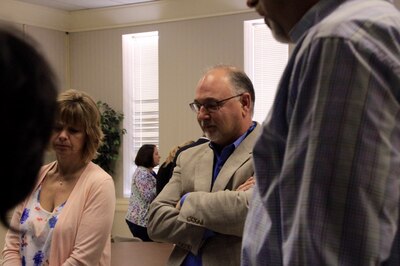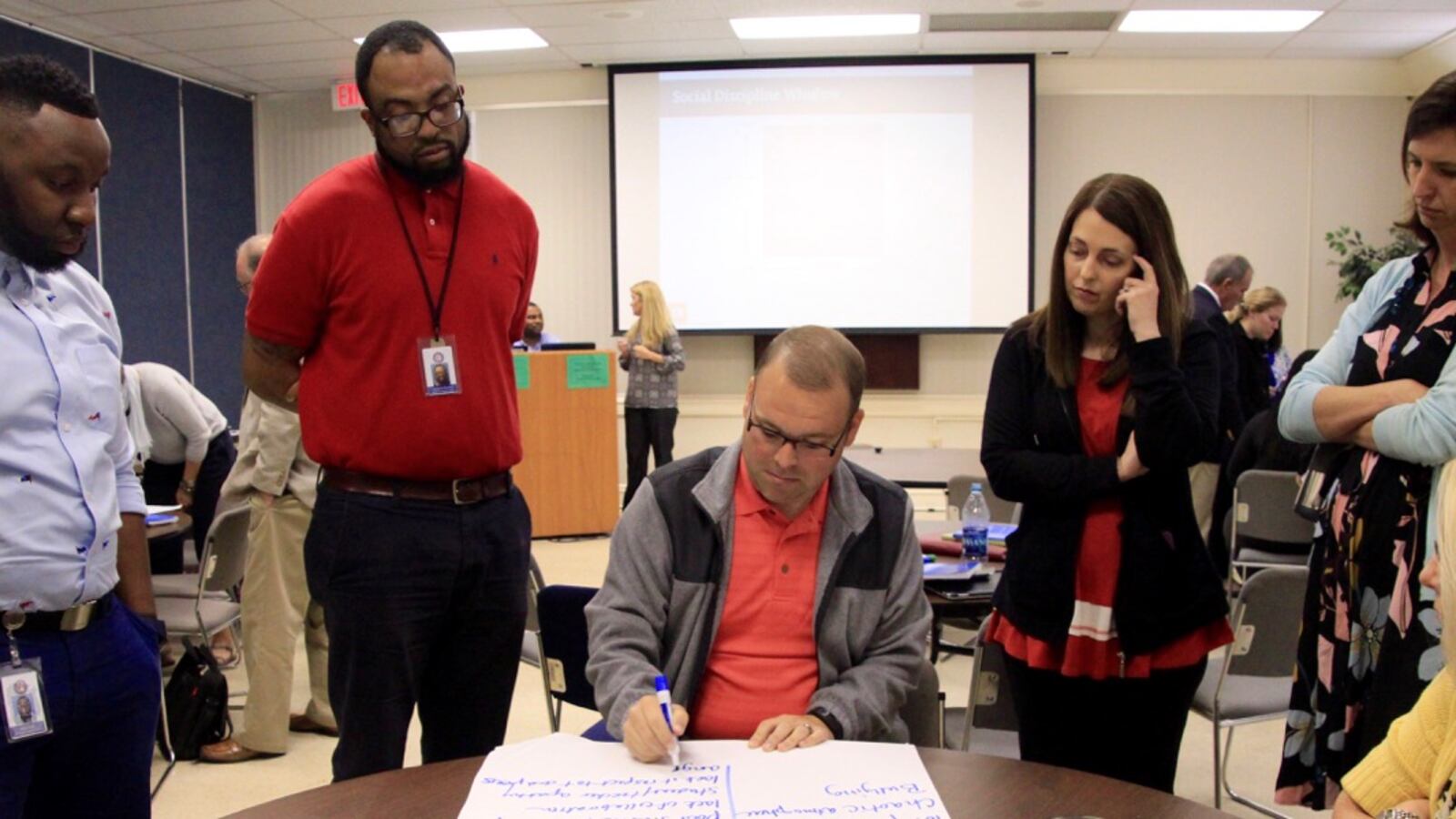Taking a cue from Nashville, Memphis school leaders are working to change the way their educators discipline students in an effort to reduce the high rate of suspensions in Shelby County Schools.
This month, about a hundred educators participated in a day-long training session to learn about restorative justice techniques already used in Metropolitan Nashville Public Schools. The Nashville district, which like Memphis serves mostly minority and low-income students, has seen its suspension rate drop since incorporating the disciplinary approach more broadly in 2014.
“Our goal is to help teachers and administrators see all of the steps they could take before suspension or expulsion. Keeping a student out of the classroom should be a last resort,” said Eric Johnson, the lead trainer and head of youth development for STARS, a Nashville-based nonprofit organization.
The training, conducted in partnership with the Tennessee Department of Education, is part of the culture shift that’s been building for more than a year as Shelby County Schools seeks to move away from exclusionary practices such as suspensions and expulsions, said Randy McPherson, who oversees school culture and climate for Tennessee’s largest district.
It’s also a far cry from corporal punishment, which the district did away with almost 15 years ago.
“There’s this idea that punishment should be immediate. You act out of line, you get suspended. That’s not what our students need,” McPherson said.
Restorative justice is relational and seeks to foster an environment of caring and respect. In order to get at the root cause behind misbehavior, it begins with educators taking into account the backgrounds and experiences that students bring to school, sometimes including hunger, domestic violence or homelessness.
Memphis is working to catch up with cities like Nashville, Chicago, New York and Los Angeles that already are bringing together students to talk out conflict. Suspensions there are on the decline, although there’s little research to show whether embracing such techniques reduces school violence and benefits students in the long run.
Here’s why Memphis hopes principals stop worrying about sagging pants and start welcoming students warmly.
District leaders acknowledge that changes are needed in Shelby County, where suspension rates are some of the highest in the state and disproportionately skew high for boys of color. During community meetings last fall about how to build better schools, parents also made it clear that the district should prioritize school climate, which includes how students are disciplined.
About two-thirds of district schools have sent some educators to either an in-house session about restorative practices or one co-presented with Facing History and Ourselves, a nonprofit organization that works with teachers and students in Memphis. McPherson is hopeful to get that number up to 100 percent during summer trainings.
Then comes the even harder part: Getting the schools to buy in to using restorative justice practices every day.

“The culture-changing process requires investment, energy and professional development,” McPherson said. “I really believe this approach to discipline works if the whole school is buying into it. If you only pay lip service to the idea, it can actually do more harm than good.”
For now, McPherson is overseeing the shift in discipline that previously was shepherded by Heidi Ramirez, who resigned in February as chief of academics. Her replacement has not yet been named.
“We will continue to focus on key strategies for improving school climate, reducing disruptive behaviors that impact academic progress and prepare students for making good choices,” McPherson said.
At this month’s restorative justice training, educators said they liked the direction that Shelby County Schools is heading — but that more trainings will be essential to lowering the district’s suspension rates.
“We can’t keep doing the same thing and expect different results,” said Brian Clark, a family engagement specialist at Grandview Middle School. “… We’re realizing we can’t handle every child the same way. We have to hear their stories and struggles and respond.”

